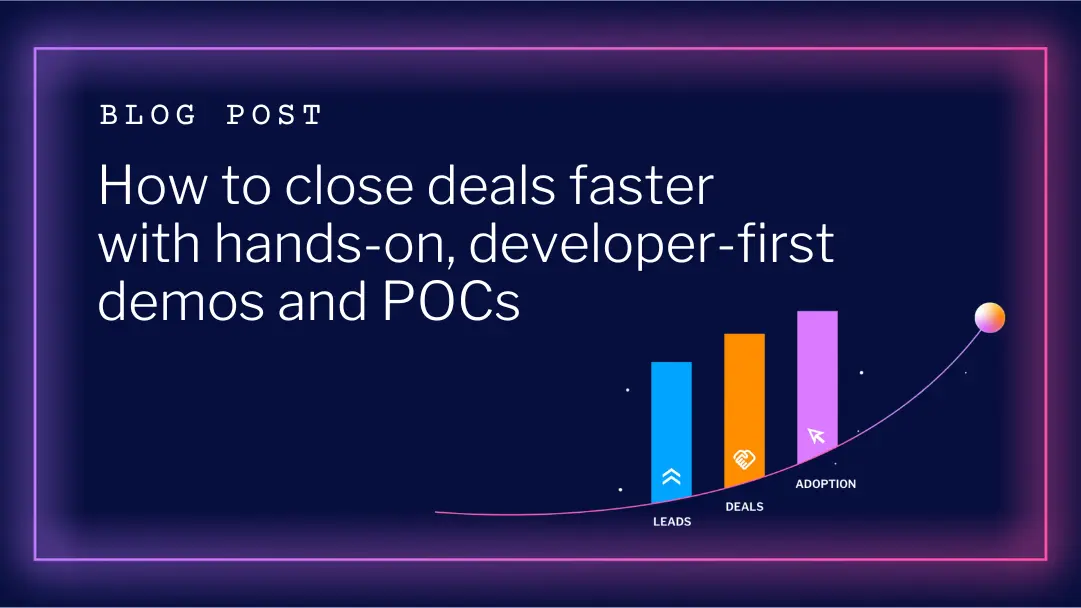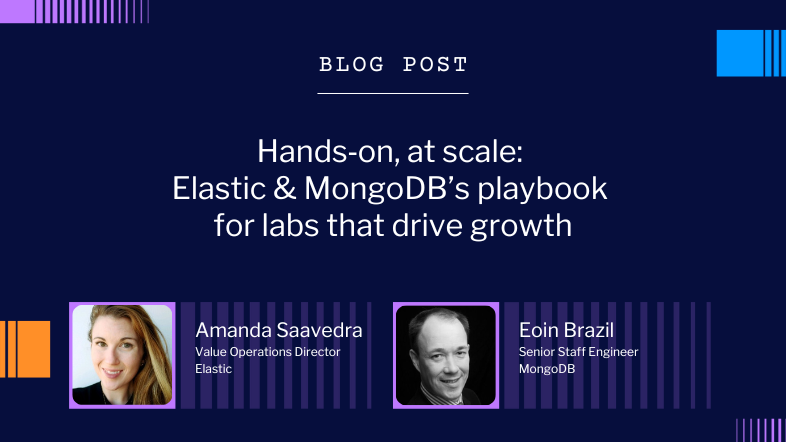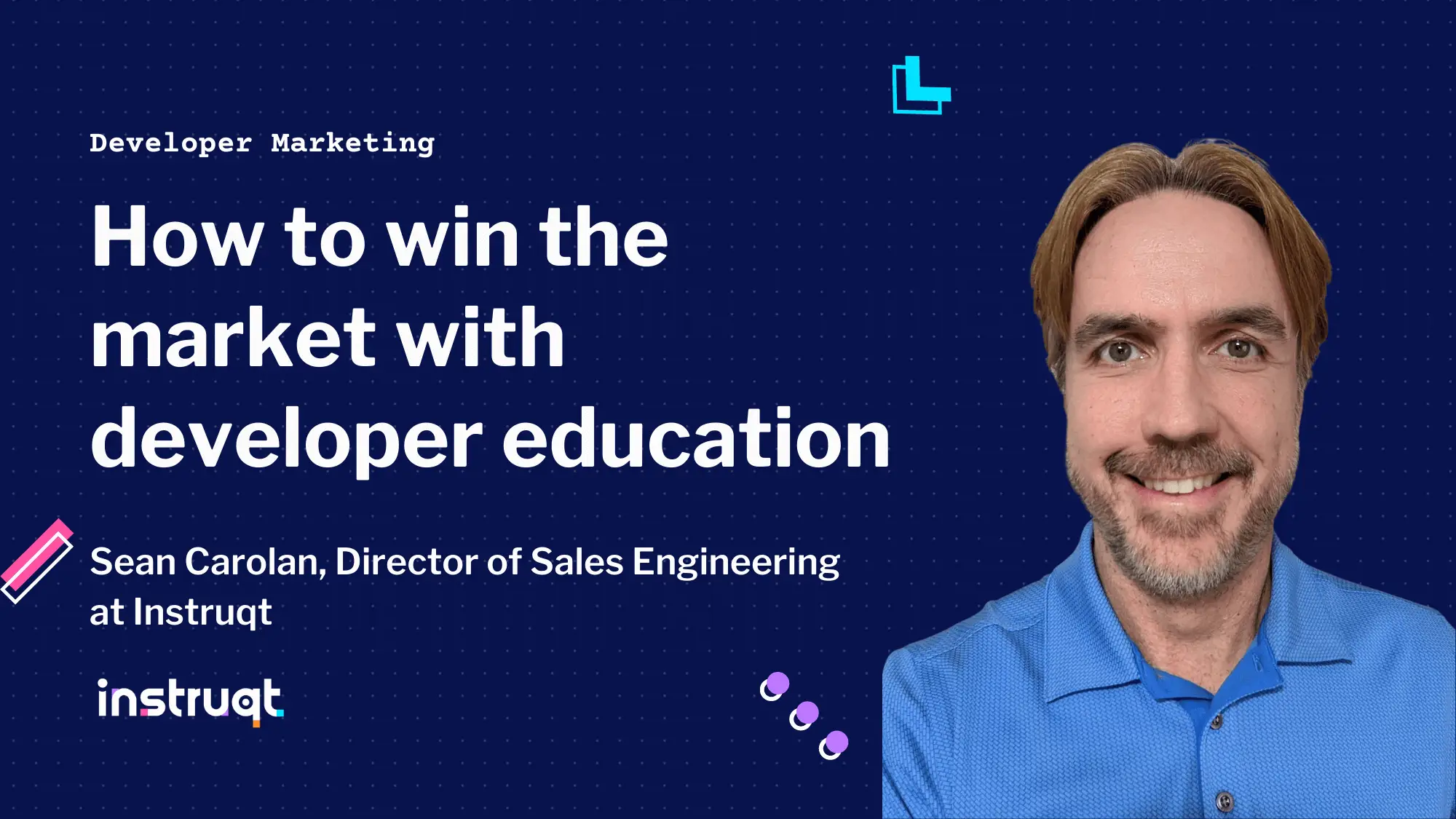Developer Marketing: How to Resonate with Developers by Understanding Their Buying Habits
The disconnect between how developers buy software and the traditional marketing approach is a major inhibitor of growth for many software companies. I sat with Jakub Czakon, Chief Marketing Officer at Neptune.ai, to unpack how marketers can better connect with developers and boost user adoption. We'll also discuss how marketing philosophies have worked with developers. So if you want to create a marketing strategy that resonates with this audience, read on!
Tl;dr
- To be successful with developer marketing, you need to switch from persuasion to education.
- Make things concrete and believable. No fluff.
- Focus on features and not benefits when you communicate with developers
- The product-led approach is ideal when you market to developers
- Check out the Developer Markepear and get more success stories
Meet Jakub Czakon - a developer marketing enthusiast
Jakub is a marketer and a data scientist. Previously, he was a professional chess player, a man of many talents. He's very passionate about developer marketing. Besides leading the marketing function at Neptune.ai, he also runs a site called Developer Markepear. Neptune.ai is a tool in the MLOps space. Their target audiences are data scientists and machine learning engineers. As Jakub is a data scientist by education, it was easier for him to understand what problems his target audiences have and how and where to engage with them to provide solutions. Jakub has been focusing on a product-led, bottom-up approach at Neptune.ai. They offer a free tier where people can try it out and use it to a certain limit. And then, when they need collaboration or go over the limits, they can purchase commercial licenses.
The Buyer Journey of a Developer Is Not Linear. To Get Their Attention, You Need to Offer Them to Test Drive Your Product
Your typical economic buyer starts with awareness. Then they go to the evaluation stage. And then, a typical purchase or upgrade event takes place. And then you try to activate that person, keep them, retain, and grow those accounts. So what is different with developers is that the evaluation stage is different. So a lot of folks, when they evaluate, they are already maybe they have already started using your product. So you may think, especially if you look at it in a linear way, they have already done more, but they're just trying it out. They want to try it out and see if this is what they think it is. This happens because developers don't trust the typical marketing content. They don't trust the typical website. They want to go to docs, they want to go to the app, and they want to try it out. They want to play with the API and see if it does what they think it does. Instead of reading your blog or learning about what this tool does from a sales rep, many developers would rather go to code examples on GitHub. They try to go to live sandbox, they want to try the free product and see what it does.This switch from focusing on persuasion to solving business problems is the major difference between selling to economic buyers and developers.
Focus On Features Over Benefits When You Communicate with Developers
A lot of times when developers are on your page, they already understand the benefits as they might have heard it from their peers. Maybe they read a blog post from someone. They’ve seen something, and they have a smell for what the benefit is. They want to see the features. They want to see how you do it, how you do what you say you do. To make the thing concrete, to make the thing believable. The more you go into the abstract, the farther away you go from the dev.
Product-led is Ideal Marketing to Developers
If you want more developers from the same organization using your tool, help them buy by letting them experience your product's value. When they start using the product, they understand the value, they understand everything. And our role is not to persuade them to buy, it's to assist their buying experience. thSo in a product-led company, the role of your sales will be about helping people buy rather than persuading them to buy. It will be about enablement. Your task is to help developers convince their managers. Focus on helping devs and their managers go through compliance rather than convincing them that this is a valuable product.Remember, developers inherently do not trust marketing or salespeople. When they raise their hand, I want to buy or, we're evaluating, it's on you to help them do it. So, at the dev level especially, the best thing you can do is enable people to do as much as they can in a self-serve motion with great docs, and great educational materials.
An Extensive Resource Library that Helps Move the Developer Buyer Forward
For economic buyers, when they become aware of your product, you educate them. But the buying journey of a developer is very convoluted for example, they could be evaluating different solutions very early, or you could do that later, right? So you may go into the product and start using it, and then you're like, okay, now I get it. So it's very similar to that, too. So then I want to compare. I want to say how it is different. Because I have to convince my manager that I should be using the paid product versus the open-source product.
There are a massive number of options in the developer tooling ecosystem.So, I think it's important to make all those resources available. So there are different stages of awareness, but each research should focus on that stage of awareness that's that, that, that I truly believe in. So if you have, if you're talking about a problem that you're solving folks and a problem if we're talking about the solutions on the market, focus on the solutions and how to evaluate them.If people are product aware and they understand your product, talk about this product, deeper going to use cases, etc. Anyway, I think all those resources are important, and it is good to make them available to folks. So even if you think about something, like a tutorial, that could be used on existing paying users to grow their usage. It could be used at the level when they are evaluating the tool. They want to understand what it does and what it doesn't do. It could be useful before they try to understand what it does.It depends on how people like to learn.
The most important part is that they will not believe anything unless they try it. Once they try it, they can look at other resources. Some people are like that. They want to try first. Some folks are very docs-heavy. They want to want written content. They want static written content. People are different. Then some folks like the videos, right? Especially that especially early. So I think having a mix of those things is very valuable. And especially as you mature as a developer-focused company, you should be adding those things, and you should have this mix of things.
Knowing Your Audience is Very Important. Here’s Jakub's Favorite Developer Marketing Example
One example that I covered in my blog recently, where there was an interesting discussion on Hacker News about that post, is Supabase. The folks are doing an amazing job there with the content they're putting out and how that resonates with their audience. They understand their audience very well. It's not developers like developers, but it's backend developers using Postgres who want to switch and do projects on the weekends. If you understand your audience this well, you can connect.
The Future of Developer Marketing Looks Bright
Developer marketing is an extremely interesting place to be. Because developers as a group will be growing. And there are a lot of interesting and specific things in developer marketing that you need to learn. And I think it's a great place to grow and to get better at it.
Wanna inspire developers to build great things with your product?
Let us show you how to use Instruqt to create magical demos and training to generate demand for your products through education.
👉 Take Instruqt for a Test Drive
Show Notes
Jakub Czakon
Developer Markepear





.png)




